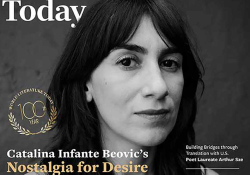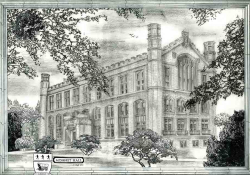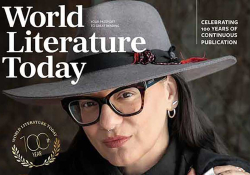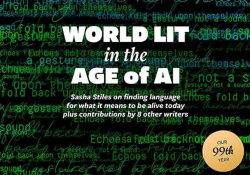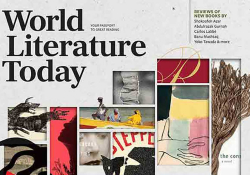Editor’s Note

IT COULD BE ARGUED that World Literature Today (still) exists because of the Neustadt Prize, not the other way around. In the mid-1960s, some University of Oklahoma administrators thought that Books Abroad, as WLT was called at the time, caused too much of a financial drain on the university’s bottom line, and that, after four decades, founding editor Roy Temple House’s vision for a “useful” little magazine had run its course. In a letter to Pete Kyle McCarter, OU’s vice president for academic affairs, however, Books Abroad’s Czech-born editor, Robert Vlach, argued that “Dr. House’s idea [was] worth a better fate than suicide” (Nov. 20, 1964).
Vlach didn’t live to see his dream of saving Books Abroad come to fruition, but his successor did: in 1969 Ivar Ivask unveiled his charter for the Books Abroad International Prize for Literature at the thirty-sixth congress of PEN International in Menton, France. Ivask envisioned an award “representative of American concern for genuine achievement in world literature,” not Old World perquisites. Although the first laureate in 1970, Italy’s Giuseppe Ungaretti, hailed from the heart of the Old World, subsequent laureates would demonstrate the prescience of Ivask’s vision: Colombia’s Gabriel García Márquez, the United States’ Elizabeth Bishop, Mexico’s Octavio Paz, India’s Raja Rao, and Brazil’s João Cabral de Melo Neto were among the early laureates who helped establish the prize’s bona fides as a truly international award, at least in terms of its geographical range.
In 2020, with the selection of Albanian writer Ismail Kadare as the twenty-sixth laureate of the Neustadt International Prize for Literature (as the award came to be known in 1976), the jury chose a writer from a country with a population smaller than that of Puerto Rico, far from the literary capitals of Europe. Yet Kadare’s influence on contemporary world literature—mainly through his prolific French- and English-language translators—has vastly outstripped the author’s Balkan provenance. In many respects, Albania’s location at the crossroads of successive empires—Roman, Byzantine, and Ottoman, especially—has given Kadare a perfect vantage point from which to observe three millennia of literary, cultural, and political history. In a telling passage in Three Elegies for Kosovo, Kadare writes: “That region, which seemed to be but a distant forecourt of Europe, was in fact its bridal chamber. The roots that had given birth to everything were there.”
Indeed, Kadare’s genius lies not only in grounding his work in a specific locale and late twentieth-century context but also in transcending those origins to converse with the masterworks of world literature. As Kapka Kassabova, the Bulgarian writer who nominated Kadare for the prize, writes: “The master narrative of Kadare’s work is Homeric in nature. It continues to uplift, transport, and cast the light of understanding.” And David Bellos sees in Kadare’s imagined universe “the whole world in literary form.”
Norman, Oklahoma, is likewise far from the world’s literary capitals, but from this crossroads of the Americas, WLT and the Neustadt Prize will continue to “cast the light of understanding” while celebrating genuine achievement in world literature.

